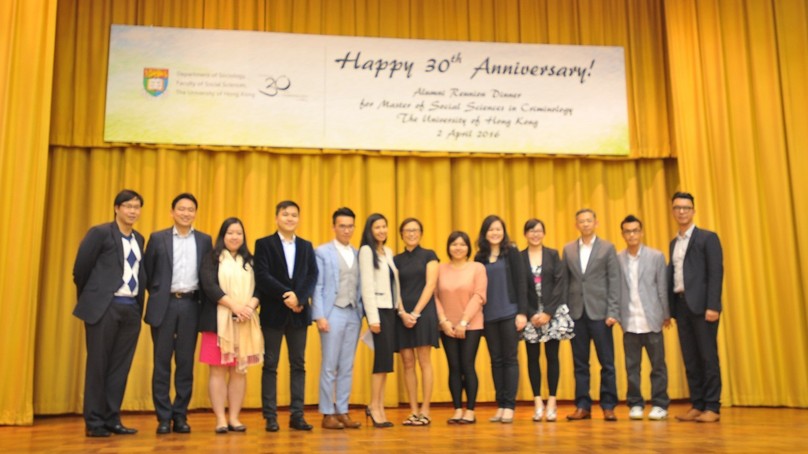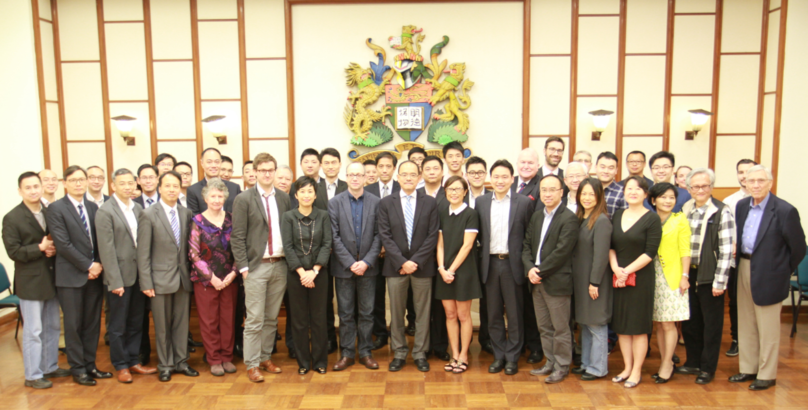
Participate
Reunions
Reunion Stories
Criminology celebrates its 30th Anniversary with 700+ alumni
Apr 2, 2016
By Professor Karen Laidler, Director of Centre for Criminology
In 1986, the first ever Master of Social Sciences in Criminology programme in Hong Kong was set up by the Department of Sociology. The department has a long tradition of studying deviance and social problems within a broader historical and social context. The programme extended that tradition and epitomized a new way of teaching and doing criminology that is sociologically informed and attuned to locally relevant empirical issues and conceptual tools.
Over time, the criminological enterprise in the department has been extended to cover a wide range of social concerns, crime and control debates in the local, regional and global context – from the history of criminal justice; drug use and culture; youth justice and youth studies; victimization survey; crime and punishment; gender, migration and imprisonment; policing and oral histories; fear of crime to military corruption; human trafficking, and social protests.
In 1986, one of the newspaper headlines on the launch of the programme noted that ‘HKU brings crime into classroom’. Thirty years on, staff and students are taking up the challenge of fulfilling the promise of a sociologically informed criminology by going out into the social world; reflecting on our everyday experiences, working lives and organisations, and the connections between ‘private troubles’ and ‘public issues’; and asking questions about the public role of criminology and professional responsibilities of criminologists.
To celebrate its 30 years, a series of exhibitions and an alumni dinner were held in April. The exhibitions represent not only a celebration of the coming of age of the Master of Social Sciences in Criminology programme, but also a recognition of the challenges that lie ahead for staff and students alike as we continue to build a criminological enterprise that truly places our local conceptualizations of crime, and control in the context of local and global transformations.
Further reading:
http://www.thestandard.com.hk/breaking-news.php?id=73140
http://news.mingpao.com/pns/dailynews/web_tc/article/20160403/s00005/1459619698653



